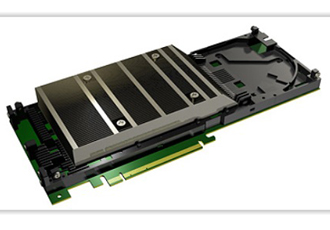Data processing tech accelerates machine learning

Data processing technology that accelerates the execution of machine learning on vector computers by more than 50 times in comparison to Spark technologies has been developed by NEC. This newly developed data processing utilises computing and communications technologies that leverage 'sparse matrix' data structures in order to significantly accelerate the performance of vector computers in machine learning.
Furthermore, NEC developed middleware that incorporates sparse matrix structures in order to simplify the use of machine learning. As a result, users are able to easily launch this middleware from Python or Spark infrastructures, which are commonly used for data analysis, without special programming.
"This technology enables users to quickly benefit from the results of machine learning, including the optimised placement of web advertisements, recommendations, and document analysis," said Yuichi Nakamura, General Manager, System Platform Research Laboratories, NEC. "Furthermore, low-cost analysis using a small number of servers enables a wide range of users to take advantage of large-scale data analysis that was formerly only available to large companies."
NEC's next-gen vector computer is being developed to flexibly meet a wide range of price and performance needs. This data processing technology expands the capabilities of next-gen vector computers to include large-scale data analysis, such as machine learning, in addition to numerical calculation, the conventional specialty of vector computers.
NEC will introduce this technology on 5th July at the International Symposium on Parallel and Distributed Computing 2017 (ISPDC-2017) held in Innsbruck, Austria, from 3rd to 6th July.
Similar articles
More from NEC Corporation
- Data processing tech accelerates machine learning 4th July 2017
- Submarine cable provides high speed internet connectivity 29th June 2017
- Latest mail processing systems for Swiss Post 20th December 2016
- NEC Electronics Europe Exhibits at SPS / IPC / DRIVES 2007 22nd November 2007




 technology at Jacobs Vehicle Systems.JPG)







Write a comment
No comments